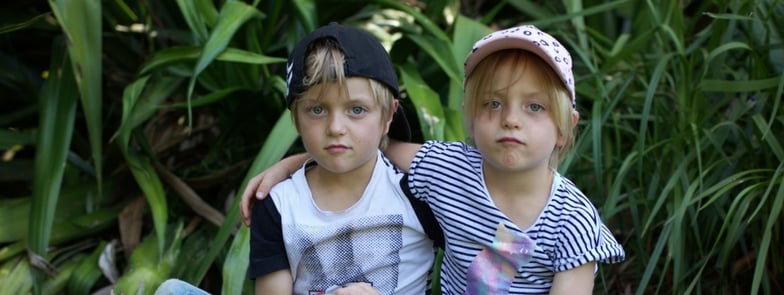


The language used to affirm the identities of trans and gender diverse people is constantly evolving, but it is a vital part of how we show our respect and support.
We have included a selection of terms that might be helpful. Teens and young people in particular are always coming up with new terms and ways to refer to themselves, so this list is ever changing and not exhaustive.
The Age published an article examining the importance of keeping up to date and using appropriate and affirming language - Missing in translation, a new media guide for reporting trans issues.
Agender – a person with no or very little connection to the traditional system of gender, no personal alignment with the concepts of either man or woman.
Assigned Gender - Most of us are assigned a gender at birth. This assigned gender is reinforced by the people around us and brings with it expectations and stereotypes about behaviour, preferences and choices. Not everyone’s gender identity aligns with the gender they were assigned at birth.
Biological sex – a medical term used to refer to the chromosomal, hormonal and anatomical characteristics that are used to classify an individual as female or male or intersex.
Cisgender – Applies to someone who identifies exclusively with the gender they were assigned at birth. Cis - comes from the Latin for same.
FtM / F2M; MtF / M2F – abbreviation: female-to-male transgender person; male-to-female transgender person.
Gender binary – the idea that there are only two genders and that every person is one of those two.
Gender expression – the external display of one’s gender, through a combination of dress, demeanour, social behaviour, and other factors, generally made sense of on scales of masculinity and femininity.
Genderfluid – applies to a person whose gender identity is not fixed and changes over time.
Gender Queer – a person whose gender identity and/or gender expression falls outside of the dominant social norm for their assigned sex, is beyond genders, or is some combination of them.
Gender Non-Conforming – people who do not subscribe to gender expressions or roles expected of them by society.
Non-binary – applies to a person who does not identify as exclusively male or female.
Pronouns - the words we use when we are referring to people - he, she, him, her, they, them. It is becoming more common for people to introduce themselves by saying “Hi My name is Alex, I use they/them pronouns.” If you are unsure of a person’s pronouns it is always best to ask or use a neutral pronoun until you are sure.
Stealth – a trans person who is not out as trans, and is perceived by others as cisgender.
trans* – an umbrella term covering a range of identities that transgress socially defined gender norms.
Transgender/Trans/Gender Diverse (TGD) – applies to a person who does not exclusively identify with the gender they were assigned at birth.
Transition - the social and physical steps someone takes to feel more aligned with their gender identity.
Trans Man/Trans Male/Trans Masculine (FTM) – a female-to-male transgender person who was assigned female at birth, but whose gender identity is that of a man.
Trans Woman/Trans Female/Trans Feminine (MTF) – a male-to-female transgender person who was assigned male at birth, but whose gender identity is that of a woman.
Ally - a (typically straight and/or cisgender) person who supports and respects members of the LGBTQ community.
Androgyny/ous - a gender expression that has elements of both masculinity and femininity
Aromantic – experiencing little or no romantic attraction to others and/or has a lack of interest in romantic relationships/behaviour.
Asexual – experiencing little or no sexual attraction to others and/or a lack of interest in sexual relationships/behaviour.
Bisexual – a person whose primary sexual and affectional orientation is toward people of the same and other genders, or toward people regardless of their gender.
Coming Out – the process by which one accepts and/or comes to identify one’s own sexuality or gender identity, often associated with telling others, or being open about your gender or sexuality.
Demiromantic – little or no capacity to experience romantic attraction until a strong sexual or emotional connection is formed with another individual, often within a sexual relationship.
Demisexual – little or no capacity to experience sexual attraction until a strong romantic or emotional connection is formed with another individual, often within a romantic relationship.
Gay – a sexual and affectional orientation toward people of the same gender.
Lesbian – a woman or feminine identifying person whose primary sexual and affectional orientation is toward people of the same gender.
Pansexual – a person who experiences sexual, romantic, physical, and/or spiritual attraction for members of all gender identities/expressions.
Straight – a sexual orientation in which a person feels physically and emotionally attracted to people of a gender other than their own.
Lorem Ipsum is simply dummy text of the printing and typesetting industry. Lorem Ipsum has been the industry's standard dummy.